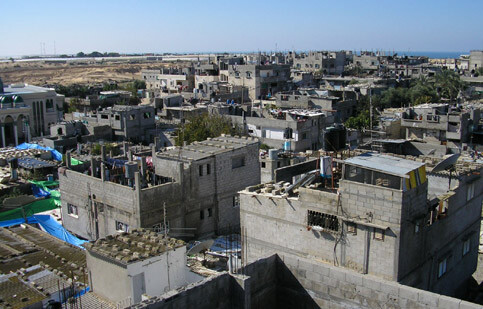Physicians for Human Rights 27 January 2005

Khan Yunis refugee camp. On the edge of the camp, Israeli forces razed large areas of land. (Arjan El Fassed)
Today Physicians for Human Rights-Israel released a new position paper which warns that a process of planning and coordinating of the provision of external medical services to residents of the Gaza Strip must begin soon, or dozens of patients may die immediately following disengagement.
The position paper entitled “The Day After” states that Israel will still be required to allow Palestinian patients to receive life-saving treatment in Israel and abroad, even after disengagement, and explains the legal reasons for this. Also, Israel must rehabilitate the Palestinian health care system over the next decade, and to raise the standards to at least those of Jordan.
Due to the poor state of the Palestinian health care system, residents of Gaza are forced to travel to the West Bank, East Jerusalem, Israel or abroad to receive certain life saving treatments and urgent diagnosis. Some services are simply non-existent in Gaza, for example: catheterization and cardiac surgery, burn treatment, pediatric cardiology, radiotherapy, MRIs, etc. Physicians for Human Rights-Israel points out that no preparations have been made to enable Palestinians needing to leave the strip for medical treatment to do so after disengagement.
The position paper described the current poor state of the Palestinian health care system and Israel’s responsibility for this situation, quoting comparative statistics. Physicians for Human Rights-Israel stresses that if Israel and the donor countries do not plan the rehabilitation of the system a humanitarian disaster can be expected. The position paper recommends that medical services continue to be purchased from various sources, while simultaneously improving the infrastructure of the medical system until it at least reaches the level of Jordan. This will most likely take about 10 years, at the cost of some $250 million a year.
Israel must immediately begin working on set of regulations which will enable the thousands each year who must leave Gaza for medical treatment to exit and receive the treatment outside of the strip. Also, plans must be made for the rehabilitation of the Palestinian health care system that was neglected for the many years of occupation. Israel’s responsibility towards the Palestinian patients does not end with disengagement. The position paper ends with a list of demands from Israel, the international community and the Palestinian Authority.
More Information
Related Links